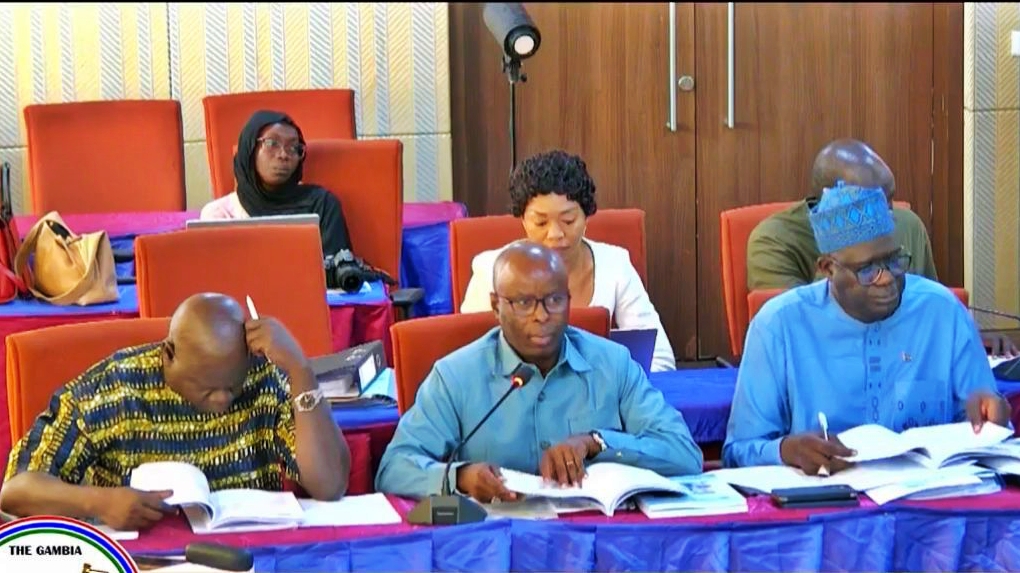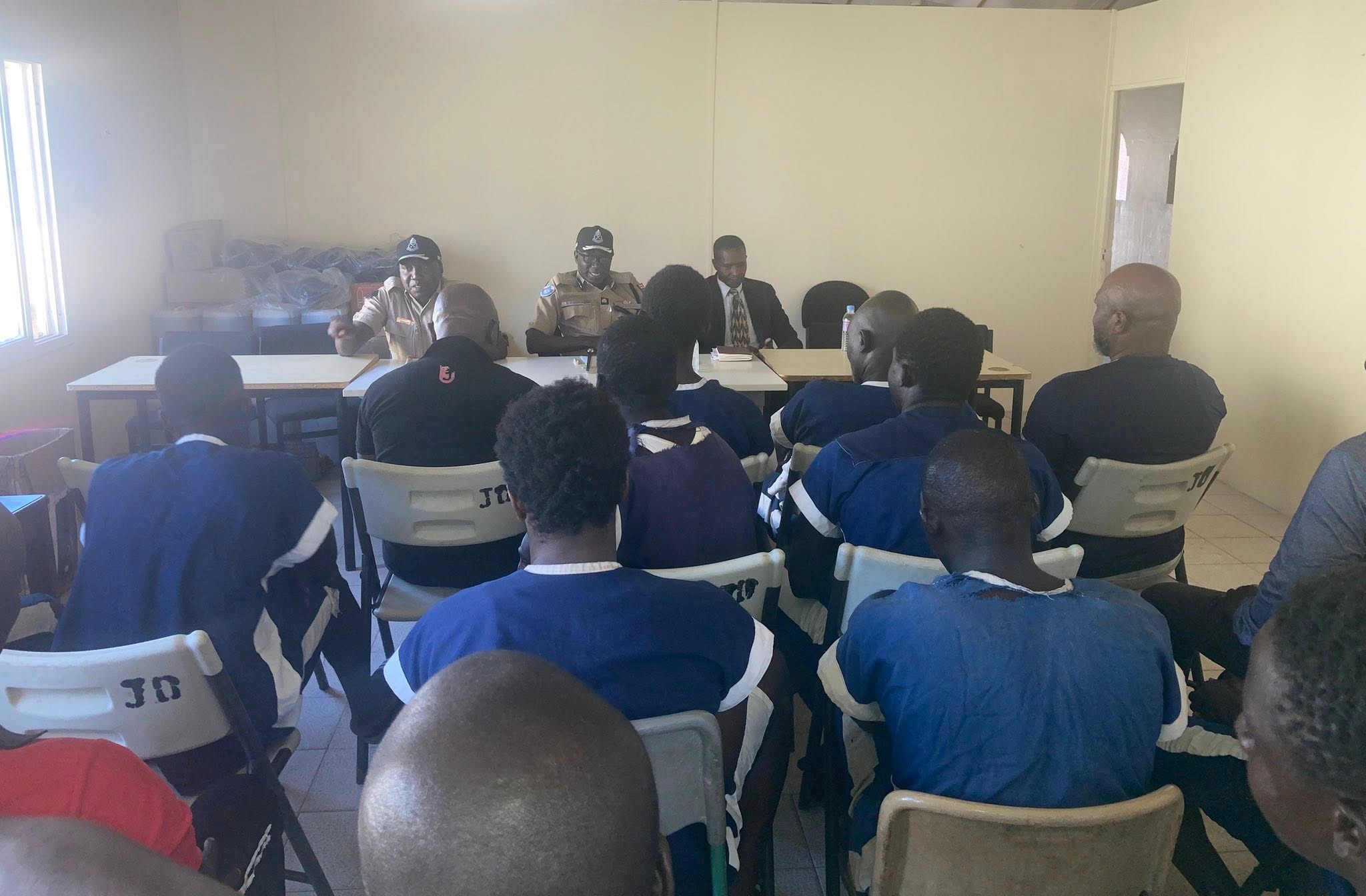Gambiaj.com – (BANJUL, The Gambia) – In response to the Gambia Maritime Administration’s (GMA) reaction to our article, “Gambia’s Dark Fleet of Oil Tankers Hit with Detentions Over Safety and Environmental Violations,” we find it necessary to dissect and clarify the inconsistencies, defensive rhetoric, and misleading justifications presented in the GMA’s reaction.
Their statements not only fail to address the core issues raised but also misrepresent the factual reporting we provided.
Incoherencies and Misleading Explanations: Misusing “Blackmail” and “Discredit“
The GMA repeatedly employs terms like “blackmail,” “discredit,” and “deliberate and coordinated campaign,” using a defensive posture that evades accountability. The Gambia Journal‘s article focused on factual detentions and potential regulatory oversight—not personal attacks or extortion.
Accusations of “blackmail” are baseless extrapolations from what the article in The Gambia Journal never stated in the story. The report presented facts and raised legitimate concerns about maritime administration oversight. Rather than engaging in factual rebuttals, the GMA resorts to deflection.
Port State Control (PSC) vs. Sanctions: Downplaying Regulatory Failures
Of course, The Gambia Journal is aware that The Gambia belongs to The Abuja MOU Port State Control regime. As a matter of fact, The Gambia Journal didn’t rely on the Lloyd’s List to do its due diligence as falsely claimed by the GMA. Rather, our reporting can be factually verified with the Port State Control Committee of the Tokyo MOU, which is the official regime dealing with information on this matter.
But while the GMA correctly distinguishes between PSC detentions and sanctions, it significantly downplays the gravity of the former.
The Gambia Journal highlighted repeated detentions, in a quarter, for serious safety and environmental violations—indicative of systemic failures, not mere routine inspections.
The GMA’s assertion that “all the ships concerned have not been involved in any criminal activity and were not arrested” is an unconvincing defense.
Regulatory failures are not measured solely by criminality but by the inability to prevent hazardous vessels from operating under the Gambian flag. These are critical safety and environmental risks that endanger the lives of seafarers and the marine environment.
Provisional Registration of Anita and Dubious Due Diligence Claims
The GMA claims that Anita was only under “provisional registration” and was “de-flagged immediately upon adverse findings.” However, The Gambia Journal maintains that the vessel continued to operate under the Gambian flag even after its detention. This contradiction exposes an inconsistency in GMA’s account.
The assertion that “due diligence is applied” is also undermined by the repeated detentions of vessels with severe deficiencies. If due diligence were effective, these vessels should never have been registered or permitted to sail in such conditions.
The GMA’s claim that many vessels have been rejected does not negate the fact that substandard ships continue to slip through.
Furthermore, the GMA’s dismissal of PSC detentions as “routine operational safety and environmental matters” is misleading.
Issues such as malfunctioning lifeboats, ballast water management failures (a fundamental element in the sinking of Bateau Le Jola, for example), and structural fire safety violations are not routine—they are critical safety and environmental hazards.
Defensive Attacks on The Gambia Journal Instead of Addressing Core Issues
Instead of substantively engaging with the concerns raised in our report, the GMA focuses on attacking the credibility of The Gambia Journal, accusing it of “bias” and “unethical reporting“. This is a deflection strategy rather than a response to the article’s core issues.
The GMA’s complaint that it was not contacted by Lloyd’s List after 2022 does not change the reality of vessel detentions. Likewise, attempting to normalize detentions by pointing out that all ships undergo inspections ignores the central issue: the frequency and severity of detentions involving Gambian-flagged vessels.
Unfounded Accusations of “Coercion” to Evade Real Issues
The GMA further speculates that The Gambia Journal‘s reporting is an attempt “to discredit the achievements of The Gambia in its ship registry and instill fear among the shipping community in order to scare ship owners from doing business with The Gambia“—a baseless extrapolation claim meant to discredit the journal’s factual reporting. This tactic of framing criticism as coercion is a weak attempt to sidestep accountability.
The GMA’s response is fundamentally defensive and fails to meaningfully engage with the critical issues of regulatory oversight and vessel safety. Its explanations are often contradictory and misleading—particularly regarding Anita’s “provisional registration” and the effectiveness of its “due diligence” processes.
Rather than addressing the growing concerns over substandard vessels operating under the Gambian flag, the GMA chooses to attack The Gambia Journal‘s credibility and speculate about imaginary ulterior motives. Meanwhile, the significant increase in sanctioned tonnage and the systemic failures in regulatory oversight remain unaddressed.
In essence, the GMA’s response reinforces the very concerns raised by The Gambia Journal: a troubling effort by the GMA on protecting its own reputation rather than ensuring the safety and compliance of vessels operating under its jurisdiction. The GMA must instead address these issues head-on and prioritize the safety of all those involved in the maritime industry, rather than deflecting blame onto others.










